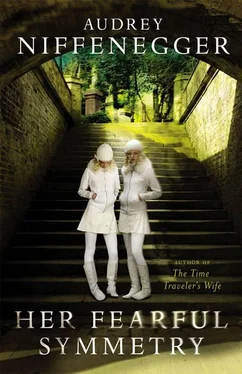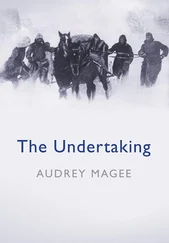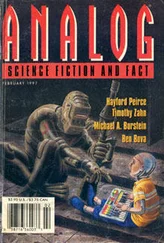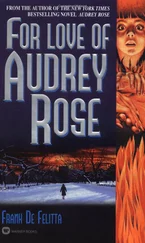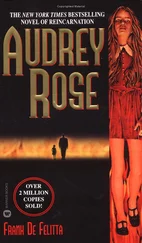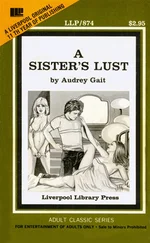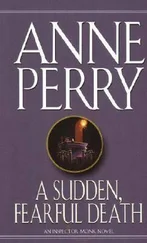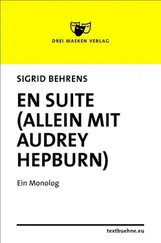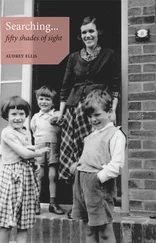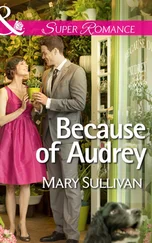“Well, right, I know you don’t believe in ghosts.” Highgate Cemetery had suffered from the attentions of paranormalists and Satanists in the past. Jessica spent a great deal of time discouraging Japanese television programmes and enthusiasts of the supernatural from promoting Highgate as a sort of haunted cemetery Disneyland. “I just…I’ve been going into Elspeth’s flat, and I have this feeling that she’s…there.” Jessica’s mouth turned down at the corners as though he’d made an off-colour joke. James looked up, curious. “What sort of feeling do you mean?” he asked Robert.
Robert considered. “It’s rather intangible. But, for example, there’s something very odd about the temperature in her flat. I’ll be sitting at her desk, sorting papers, and I’ll suddenly be very cold in one specific part of my body. My hand will be freezing cold and then it will go up my arm. Or the back of my neck…” Robert paused, staring at his drink. “Things move, in her flat. Tiny, tiny movements: curtains, pencils. Movement at the edge of my peripheral vision. Things aren’t where I put them when I come back. A book fell from the desk onto the floor…” He looked up and caught James shaking his head slightly at Jessica, who put her hand over her mouth. “Yeah, okay. Never mind.”
Jessica said, “Robert. We’re listening.”
“I’m losing it.”
“Well, perhaps. But if it makes you feel better…”
“It doesn’t.”
“Ah.” The three of them sat quietly.
James said, “I saw a ghost once.”
Robert glanced at Jessica. She had a rather resigned expression, her smile one-sided, her eyes half-closed. Robert said, “You saw a ghost?”
“Yes.” James shifted in his chair, and Jessica leaned over and adjusted the pillow that supported his lower back. “I was quite small, only a lad of six. So let me see, that would have been in 1917. I grew up just outside of Cambridge, and the house my family lived in at that time had once been an inn. It was built around 1750. It was very large and draughty and stood by itself at a crossroads. We didn’t use the second floor, all of our bedrooms were on the first floor. Even the maid slept on the first floor.
“My father was a don at St. John’s, and we used to have a great many visitors come to stay with us. Ordinarily there were enough rooms to accommodate everyone, but on this occasion there must have been more visitors than usual, because my younger brother, Samuel, was put to sleep in one of the unused bedrooms on the top floor.” James smiled to himself. “Sam was generally a pretty cool customer, as the Americans say, but he howled all night, until my mother went up and took him to sleep in her room.”
Robert said, “I didn’t know you had a brother.”
“Sam died in the war.”
“Oh.”
“So, the next night, I was to sleep in the second-floor room-”
“Wait. Did Sam tell you why he’d cried?”
James said, “Sam was only four, and of course I teased him, so he wouldn’t say. At least that’s what I remember. So, I was put to bed upstairs. I remember lying there with the blanket pulled up to my chin, my mother kissing me goodnight, and there I was in the dark, not knowing what terrible thing might be ready to slink out from the wardrobe and smother me…”
Jessica smiled. Robert thought it might be a smile for the morbidly fantastical imaginations of children.
“So what happened?”
“I fell asleep. But later that night I woke up. There was moonlight coming in through the window, and the shadows of tree branches fell onto the bed, waving gently in the breeze.”
“And then you saw the ghost?”
James laughed. “Dear chap, the branches were the ghost. There weren’t any trees within a hundred yards of that house. They’d all been cut down years before. I saw the ghost of a tree.”
Robert thought about it. “That’s rather elegant. I was expecting ghouls.”
“Well, that’s just it, you see. I think perhaps if that sort of thing does happen-ghosts-it must be more beautiful, more surprising than all these old tales would have us believe.”
Robert happened to look at Jessica while James was speaking. She was gazing at her husband with an expression that combined patience, admiration, and something very private that seemed to Robert like the distillation of a lifetime of marriage. He felt a sudden need to be alone. “Do you have any ibuprofen?” he asked Jessica. “I think the sun’s given me a headache.”
“Of course, let me get it for you.”
“No, no,” he said, getting up. “I’ll just have a lie down before we eat.”
“There’s some Anadin in the cabinet in the ground-floor loo.”
Jessica and James watched Robert walk stiffly across the terrace and into the house. “I’m really worried about him,” Jessica said. “He’s lost the plot, a bit.”
James said, “She’s only been dead eight months. Give him some time.”
“Ye-es. I don’t know. He seems to have stopped-that is, he’s doing all the things one does, but there’s no heart in him. I don’t think he’s even working on his thesis. He’s just not getting over her.”
James met his wife’s anxious eyes. He smiled. “How long would it take you to get over me?”
She held out her bent hand, and he took it in his. She said, “Dear James. I don’t imagine I would ever get over you.”
“Well, Jessica,” said her husband, “there’s your answer.”
Inside the house, Robert stood in the dim ground-floor hallway with two tablets in his hand. He swallowed them without water and leaned his forehead against the cool plaster wall. It felt marvellous after the relentless sunlight. He could hear the children calling to each other, croquet abandoned for some other game. Now that he was alone he wanted to go back outside, to distract himself, talk of something else. He would go back in a few minutes. His throat felt constricted; the pills had gone down the wrong way. He realised that he was leaving sweat on the wall, and wiped it with his forearm. Robert shut his eyes and thought of James, a small boy sitting up in bed, staring at the shadows of absent trees. Why not, he thought. Why not?
E LSPETH NOBLIN had been dead for almost a year now, and she was still figuring out the rules.
At first she had simply drifted around her flat. She had little energy and spent a great deal of time staring at her former possessions. She would doze off and reawaken hours, perhaps days later-she couldn’t tell, it didn’t matter. She was shapeless, and spent whole afternoons rolling around on the floor from one patch of sunlight to another, letting it heat every particle of her as though she were air, so that she rose and fell, warmed and cooled.
She discovered that she could get into small spaces, and this led to her first experiment. Her desk had one drawer which she had never been able to open. It must have been stuck, because the key that unlocked all the others didn’t work on the lower-left-hand drawer. It was a shame; it would have been handy for keeping files. Now Elspeth drifted into it through the keyhole. It was empty. She was slightly disappointed. But there was something about being in the drawer that she liked. Being compressed into two cubic feet gave her a solidity that she quickly became addicted to. She didn’t have separate body parts yet, but when she crowded into the drawer Elspeth felt sensations akin to touch: feelings that might be skin against hair, tongue against teeth. She began to stay in the drawer for long periods, to sleep, to think, to calm herself. It’s like going back to the womb, she thought, happy to be contained.
One morning she saw her feet. They were hardly there, but Elspeth recognised them and rejoiced. Hands, legs, arms, breasts, hips and torso followed, and finally Elspeth could feel her head and neck. It was the body she had died in, thin and scarred by needle holes and the wound where the port had been, but she was so glad to see it that for a long time she didn’t care. She gained opacity gradually-that is, she could see herself better and better; to Robert she was quite invisible.
Читать дальше
